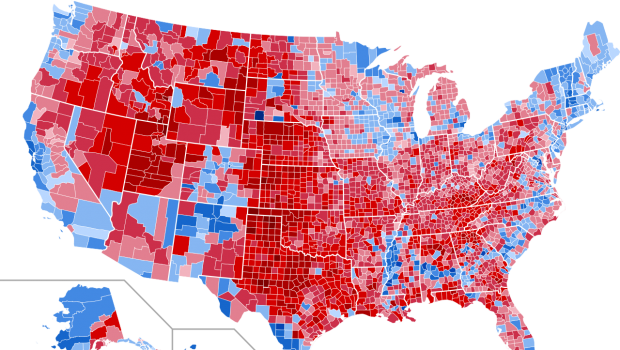The Week After The Elections
La semana después
Multiple authors
Translated by Tanya Huntington
Trump’s electoral triumph, as experienced by Latin American contributors to Literal
 Sabina Berman
Sabina Berman
Not only would the sudden repatriation of undocumented persons be a terrible blow –the loss of money transfers wired to Mexico for decades would be another; and the loss of jobs in assembly plants, yet another. Will the United States suffer as we do? In the long run, probably. As Carlos Slim has pointed out, the fact that the giant of globalization is now the country closing its borders to globalization will be a tragedy for said giant, because even if employment rises on a short term basis, American power worldwide would soon wane in equal measure. But the tragedy of the United States is theirs, not ours. For us, it is time to look south, east, and west. And inwards, toward our own country.
 Miguel Cane
Miguel Cane
Like the shameful Brexit decision, this presidential election in the US was defined by stupidity –given that the results of the race were decided in zones where pessimism and the failure of public education swayed people who voted capriciously, not even knowing why– and by individualism, that is to say, a fake nostalgia for a country (not exempt from discrimination) that led to the Baby Boomers giving one last kick in the crotch to those who are barely starting their adult lives and who, in their indifference as voters, ceded control of the ballot boxes to those “deplorables” who proved that Poor White Trash must be taken seriously.
The lesson for the Democratic electorate –and to a certain extent, to their southern neighbors, that is to say, us– is clear: we need to stop defining progress as something inherent to mankind, or wallowing in its achievements. We face a new era of fascism and right-wing rule, right next door so no matter what, we need to stay alert. The labor of recovery must begin again. It will require great effort, clarity, and consistency to win back what we have lost.
 Gisela Heffes
Gisela Heffes
I have been asked to write something about the victory of Donald J. Trump. Since 3 in the morning on November 9 of the year 2016, I have done nothing but read, listen, and see all that is being said, written, and recorded on this topic. There is so much and yet, so little to say. So much, because there is a supersaturation of articles, editorials, journalistic and op-ed commentary that accurately (or inaccurately) attempt to unravel the key to this enigma: chronicles, videos, and images that briefly capture ideas that spread (our discontent) via the media, etc. And so little, given that we are still in a state of shock and therefore, need to regain our distance and objectivity, while attempting to analyze the causes behind this catastrophe with a cool-headedness that only time can provide. This is why I cannot write an objective commentary that assesses the situation and its implications across the nation, or in Latin America, or worldwide. I prefer to curl up like a tiny snail and observe events as they unfold from my protective shell. I think that if I were to attempt to define with a single word this feeling of frustration and impotence, it would be “disgraceful.” It’s the first word that comes to mind. Disgraceful, because of what all of us already know, have read, have seen (and I am thinking of the word in English, perhaps, because I dream that it will climb like a kite all the way up to Trump Tower in Manhattan). But in Spanish, it can also be desgracia. Disgrace and uncertainty. The latter also cuts right through me. But I cannot think yet. I can only quote: guide the reader to texts that have already said and say what we know or don’t know, or something beyond that. But as for me, I am still hiding in my shell. I am lucky enough to have a shell to hide in. I hope that in all their endeavors to invest in “infrastructure,” they don’t pull me out of it. I hope that I am not destroyed by the DT moles, or pushed to unthinkable limits. I hope my shell is not gentrified, and that it may endure, together with those shells occupied by everyone else. That we may all endure together, until our shells become strong enough to enable us to defend ourselves. And then, to attack the problem.
 Miriam Mabel Martínez
Miriam Mabel Martínez
Trump’s victory was caused by people being fed up, or so they say. I believe it is the effect of ignorance, translated into fear. Today as never before, the work Protect Me from What I Want by the artist Jenny Holzer takes on new relevance, because all of the dark desires that Trump caused to emerge are starting to surface. The imaginary wall that already divides us will be built even higher, xenophobia will become more evident, misogyny more open, vengeance more practiced, robber barons more validated, and the game of “you are either with me, or against me” will become law… This permissiveness is what frightens us, and given that we are now being called upon to take a hard look at one another, it also obliges our own government here in Mexico not to fulfill its promises, but to act, something that it has not done since money transfers replaced our GNP as a pillar of the economy, or since drug trafficking was transnationally consolidated instead of our intelligence. If we were less afraid, we might be able to think long-term; but fear is the product favored by savage capitalism… something else that is gaining ground this side of the Rio Grande.
 Jaime Mesa
Jaime Mesa
I have the slightest impression that the reign of terror waged by Donald Trump against his opposition (and the rest of us) as part of his presidential campaign is just that: a series of boastful claims in order to convince his electorate. In other words, how do you win a presidency? Like everyone else does: by offering your public what they want to hear. Those who voted for him would like to hear more about gringo power –that they don’t need immigrants (the promise to deport around 11 million Mexicans)– or about the defense of the nation –to build a huge wall, etcetera, etcetera. But in the end, as President he will understand, as so many others have, that keeping campaign promises is not so simple, that it will bring him more grief than good. We don’t even have to concede him a shred of common sense: neither the opposition nor the real world nor the market (he is a businessman, after all) will become his allies if he keeps up all this bullying.
Our maniacal concentration on a phenomenon that takes place in another country and that, logically, remains distant from our power of decision or efforts to modify it concerns me. I worry, because it makes us forget our own problem: more than half of the population here in Mexico elected a bad president a few years ago, which means we are only a couple of years away from electing one who will be far worse. Once our local Trump arrives with his own brand of bullying to convince that half of the populace who want to hear a certain kind of discourse, what will we do, those of us who think what happened just now in the United States is so terrible? Yuri Herrera has said that it is not enough to vote, that we have to be activists as well. That is to say, we have to discuss and argue with the five, six, ten, twenty people around us who are convinced that Trump, Peña Nieto, or those of a similar vein will do us some good. We have to defend tolerance, respect, and other possibilities that for some reason, they cannot see but that in theory, we do. Not to tweet, but to go out into the streets. Or not to tweet so often, but to actually talk with other people who are not from our crowd, who do not think as we do. Not to evangelize, but to reach an understanding.
Moreover, we have every chance to win. José Mariano Leyva says that we have learned two things: “the horrible job done by political analysts, and the false usefulness of polls.” If a few months before the next Mexican elections, we haven’t spoken with a great many people who, ostensibly, think differently than we do; if we continue to believe what the political analysts are saying (those reports that are limited to false hopes or phantoms of fear) while reading polls at the breakfast table, then what happened in the United States will have made matters even worse.
As someone wrote on the social networks: “They vote. We don’t.”
 David Miklos
David Miklos
The morning, on November 9, 2016, I was awakened by a mosquito at around six o’clock. I had been in a deep sleep ever since I decided to turn off the cell phone and recognize the obvious: that Hillary Clinton would not win the election. And indeed, when I turned the cell back on, everything was Trump Triumphs, and thousands of disconsolate messages. Did we seriously believe Hillary would actually win? Such was the desire of well-thinking political experts who put too much “wishful thinking” into their opinions and too little rigor into their analyses. Until what they–what none of us– wished for happened, based on data that is now evidently fallible. I cling to the moderation of Hillary in her concession speech and in the words, always notable, of Barack Obama: the presidency of the United States is a relay race where someone passes along the baton of command over a nation that remains the same, in spite of everything. In Mexico, of course, confusion reigns, then fear, then Trump’s insults and his threat of border wall construction with us as his masons. Frankly, beyond his xenophobia, misogyny and apparent ignorance, I believe that Trump will be a president more or less as moderate as President Rodham Clinton would have been, or the incomparable President Obama continues to be. We shall see how his presidency affects a Latin America that, at this moment, is too concentrated on healing its own wounds to worry much about what’s going on up north, excepting the atypical case of Mexico, a country that before looking at itself in the mirror always looks up, as if awaiting an answer to its menial query, “¿Mande?” One thing is clear to me: democracy is the final guise worn by capitalism in its most bestial phase. The candidates themselves are more products than human beings, and the media focus on anything but providing information. It is, indeed, the most perfect phase of the Society of the Spectacle aprés Debord –not his clumsy imitator, the former Peruvian writer who remains for me unmentionable in his caricature of himself. I write these lines hurriedly, from my perception of the crisis and from a sense of uncertainty that can only be seen as positive: we have hit rock bottom. From there, and only from there, will it be possible for us to rethink ourselves as a society, to restore value to the humanities –to History and Literature, above all– and to accept the ephemeral nature of neoliberal technocracy, burned out as a result of our overconsumption. Trump is nothing more than a mosquito that enters the bedroom of History at six in the morning.
 Rose Mary Salum
Rose Mary Salum
The US presidential elections in the year 2016 have had devastating results. They have shed light on a way of thinking that many of us believed was a thing of the past. When in late 2008, the Republican Party left the country nearly bankrupt and its citizens opted for a dark-skinned President who had graduated from Columbia and Harvard with a refined education, we never imagined that 8 years later, racism and ignorance would determine the electoral results of 2016 and that a president from the Republic Party would be elected once again. We never thought that in the “most powerful country in the world” there were people who would vote for an openly fraudulent, tax-evading, sexual predator who is racist, misogynist, disrespectful, and uneducated to boot. What we are seeing today is almost inconceivable, and hard to understand. Because this gives us an idea of the educational crisis in an industrialized nation that over the past few years, has imposed policies that take very little interest in the education of its citizens. What is the result? A vote comprised of a rural majority that hopes to recover American greatness. The sad thing about this whole affair is that in all likelihood, nothing that his voters seek will be fulfilled: jobs have been disappearing due to technological advances, not because of immigrants who come to the United States to harvest crops. White supremacy is practically a myth from the past: the United States is a country of a vast racial diversity, something that cannot be erased by a wave of mass deportation. And last but not least, the greatness of the country will not be “recovered” under Trump, because it is measured by the moral quality and education of its inhabitants, not by its racism, xenophobia, or misogyny.
 Socorro Venegas
Socorro Venegas
Trump has promised to build a wall between two cultures interrelated in historically complex, mutually beneficial ways. I believe it is fundamental that we understand that there is always fear and prejudice behind any rejection of those who are different, and that all we possess to counteract this is our mighty cultural wealth, or our will not to bear resentment against this electorate for the decision it has made. May the wall never prevent us from sustaining a dialogue with those on the other side, and may we find many creative ways to overcome it.
©Literal Publishing.
 Sabina Berman
Sabina Berman
No solo la repentina repatriación de los indocumentados será un golpe, la pérdida de las remesas que enviaron al país durante décadas será otro golpe, y la pérdida de las plazas de trabajo en las maquiladoras, será un tercer golpe. ¿Sufrirá a la par Norteamérica que nosotros? A la larga, probablemente. Como lo expresó Carlos Slim, que el gigante de la globalización, Norteamérica, sea quien clausure sus fronteras a la globalización, se transformará en una tragedia para ese gigante, porque aún si los empleos aumentarán ahí en lo inmediato, en lo mediato el poderío norteamericano en el planeta menguará en igual medida. Pero la tragedia norteamericana es de ellos, no nuestra. Para nosotros, es tiempo de mirar al Sur, al Este y al Oeste. Y hacia dentro de nuestro país.
 Miguel Cane
Miguel Cane
Al igual que la vergonzosa elección del Brexit, esta elección presidencial en EEUU la definieron la estupidez –pues el resultado de la contienda se decidió en zonas donde dominaba el pesimismo y el fracaso educativo, con gente que votaba por capricho sin saber ni por qué– y el individualismo, donde la falsa nostalgia por un país que no era ecuánime llevó a los Baby Boomers a darle una última patada de ahogado en la entrepierna a aquellos que apenas inician su vida adulta y quienes, en su indiferencia por votar cedieron el control de las urnas a los “deplorables” que demostraron que la Poor White Trash es cosa seria.
La lección para el electorado demócrata –y en cierta medida, para los vecinos al sur, es decir, nosotros– es clara: deberíamos dejar de definir al progreso como un algo inherente al hombre y regodearnos de sus logros. Estamos ante una nueva era de fascismo y ultraderecha en la potencia que vive al lado y como sea, hay que estar alertas. El trabajo de recuperación comienza de nuevo y se va a requerir de mucho esfuerzo, claro y constante, para recuperar lo perdido.
 Gisela Heffes
Gisela Heffes
Me han pedido que escriba algo sobre la victoria de Donald J. Trump. Desde las 3 de la madrugada del 9 de noviembre del año 2016 no hago otra cosa que leer, escuchar y ver todo lo que se dice, escribe y se registra sobre este hecho. Hay mucho y poco para decir. Mucho, porque hay una saturación de artículos, editoriales, comentarios periodísticos y de opinión que acertadamente (o no) intentan dilucidar la clave del enigma, crónicas, videos e imágenes que capturan brevemente las ideas que circulan (el malestar) por los medios, etc.; poco, dado que todavía estamos en estado de shock y, como tal, necesitamos recuperar la distancia, la objetividad, e intentar analizar el por qué de esta catástrofe con la frialdad que ofrece el tiempo. Por esta razón, no puedo escribir un comentario objetivo que analice la situación y sus implicancias en el país, en América Latina, y en el mundo. Prefiero ensimismarme, como un pequeño caracol, y ver, desde mi caparazón protector, el desarrollo de los acontecimientos. Pienso que, si intentara definir con una palabra que englobe este sentimiento de frustración e impotencia, diría, en inglés, “disgraceful”. Es lo primero que me viene a la cabeza. Disgraceful por lo que todos ya sabemos, hemos leído, hemos visto (y en inglés, quizá, porque sueño que esa palabra se remonte, como un barrilete, hasta la torre Trump de Manhattan). Pero puede ser también “desgracia”, en español. Desgracia e incertidumbre. Esto último también me atraviesa. Pero no puedo pensar. Puedo citar, puedo llevar al lector hacia lecturas que ya han dicho y dicen lo que sabemos y no, o aún más. Pero, por mi parte, todavía me escondo en mi caparazón. Qué suerte tener un caparazón donde esconderme. Espero que, con el afán de invertir en “infraestructura”, no me lo saquen. No me lo destruyan con las topadoras DT ni lo empujen hacia límites impensables. Espero que mi caparazón no sea gentrificado sino que permanezca, como así también los de los demás, y que todos juntos resistamos, hasta que nuestros caparazones sean muy fuertes, y podamos defendernos. Y atacar.
 Miriam Mabel Martínez
Miriam Mabel Martínez
El triunfo de Trump, dicen, es resultado del hartazgo, yo creo que es efecto de la ignorancia que se traduce en miedo. Hoy como nunca pieza Protect me from what I want de la artista Jenny Holzer cobra relevancia, porque todos esos deseos oscuros que hizo emerger Trump están empezando a aparecer. El muro imaginario que ya nos divide será más alto, la xenofobia más evidente, la misoginia más abierta, la venganza más practicada, el gandallismo económico más justificado, y el juego de estás conmigo o en mi contra se convertirá en regla… Esta permisividad es la que asusta, y si bien nos convoca a ahora sí ver al otro, también obliga a nuestro gobierno a cumplir no promesas sino a actuar, algo no ha hecho donde las remesas sean un pilar de nuestra economía y no la productividad interna, o donde el narcotráfico se consolida como una transnacional y no el pensamiento. Si tuviéramos menos miedo podríamos pensar a largo plazo, pero el miedo es el producto favorito del capitalismo salvaje… Y ese también está ganando de este lado del río.
 Jaime Mesa
Jaime Mesa
Tengo una ligera impresión de que el reino de terror que ha sembrado Donald Trump hacia sus opositores y hacia el resto de nosotros como parte de su campaña presidencial es eso: propuestas de un bravucón para convencer a sus electores. Es decir: ¿cómo ganar la Presidencia? Como hacen todos: ofreciéndole a su público lo que quiere oír. Los que votaron por él querían escuchar sobre el poderío gringo: no necesitamos a los inmigrantes (la promesa de deportación de unos 11 millones de mexicanos); sobre la defensa de la nación: construir un muro enorme, etcétera, etcétera. Pero, a final de cuentas, como presidente entenderá, como lo han hecho todos, que el cumplimiento de las promesas de campaña ni es tan fácil y que le traería más problemas que ventajas. Ni siquiera hay que concederle un poco de sentido común: ni la oposición ni el mundo real ni el mercado (él a final de cuentas es un empresario) serán sus aliados si sigue con las bravuconadas.
Me preocupa la concentración maniática hacia un fenómeno que ocurre en otro país y que, lógicamente, queda lejos de nuestra decisión o esfuerzos por modificar. Me preocupa porque eso nos hace olvidar nuestro problema: más de la mitad de la población en México hace unos años eligió a un mal presidente y estamos a un par de años de elegir a otro mucho peor. Así que cuando llegue nuestro propio Trump, con sus bravuconadas a convencer a la mitad que quiere escuchar un cierto discurso, ¿qué haremos nosotros los que ahora pensamos que lo que pasó en Estados Unidos es lo peor? Yuri Herrera ha dicho que ya no basta con votar, hay que ser activistas. Es decir: discutir y argumentar con los cinco, seis, diez, veinte personas que tenemos alrededor y que están convencidos de que Trump, Peña Nieto o los que vengan en esa línea están haciendo o harán las cosas bien. Discutir sobre la tolerancia, el respeto y las otras posibilidades que por cualquier razón ellos no ven y, en teoría, nosotros sí. No tuitear pero sí salir a la calle. No tuitear tanto pero sí hablar con otras personas, no de nuestro grupo, no las que piensan como nosotros, y no para evangelizar si no para lograr un entendimiento.
Además, vamos de gane. Dice José Mariano Leyva que hemos aprendido dos cosas: “el pésimo trabajo de los analistas políticos y la falsa utilidad de las encuestas”. Si unos meses antes de las próximas elecciones mexicanas no hemos hablado con un buen número de personas que, pretendidamente, piensan distinto que nosotros, seguimos creyendo lo que dicen los analistas políticos (esos análisis que sólo fomentan una ilusión tonta o un fantasma de miedo) y leemos encuestas mientras desayunamos, entonces, lo que pasó en Estados Unidos habrá recrudecido lo que, hasta ahora, hemos hecho.
“Ellos votan. Nosotros, no”, alguien escribió en redes sociales.
 David Miklos
David Miklos
Hoy por la mañana, 9 de noviembre de 2016, me despertó un mosquito hacia las seis. Había dormido sin tregua desde que decidí apagar el celular y asumir lo evidente: Hillary Clinton no ganaría las elecciones. Y, en efecto, cuando encendí el celular de nuevo todo era Trump Triumphs y miles de mensajes desconsolados. ¿En serio creímos que Hillary iba a ganar? Tal era el deseo de los opinionistas y politólogos biempensantes, que le pusieron demasiado “wishful thinking” y poco rigor a sus análisis. Ocurrió lo que no deseaban –lo que no deseábamos–, basado en datos que, hoy, son evidentemente falibles. Yo me apego a la moderación de Hillary en su discurso de concesión y en las palabras, siempre notables, de Barack Obama: la presidencia de Estados Unidos es una carrera en la que uno le pasa a otro la estafeta del mando del país, que es siempre el mismo, pese a todo. En México, claro, impera la confusión, luego el miedo, después de los insultos de Trump y la amenaza de la construcción del muro fronterizo, con nosotros como sus albañiles. Francamente, más allá de su xenofobia, misoginia y aparente ignorancia, creo que Trump será un presidente tanto o más moderado que la presidenta que habría sido Clinton y el gran presidente que sigue siendo el incomparable Obama. Ya veremos cómo impacta su presidencia a América Latina, que, en realidad, está muy concentrada en sanar sus propias heridas como para preocuparse por lo que pasa en el norte, salvo por el caso siempre atípico de México, que antes de mirarse a sí mismo ve hacia allá arriba, como esperando la respuesta a un subyugado “¿Mande?”. Una cosa me queda clara: la democracia es la botarga última del capitalismo en su fase bestia. Los candidatos son más productos que seres humanos y los medios se concentran en cualquier cosa menos en informar. Es, sí, la fase más perfecta de la sociedad del espectáculo, aquella de Debord, no la de su torpe imitador y antiguo escritor peruano, para mí innombrable en su carácter de botarga de sí mismo. Escribo estas líneas a vuela pluma, desde la contemplación de una crisis y una incertidumbre que no pueden ser más que positivas: hemos tocado fondo. Y desde allí, sólo desde allí, será posible repensarnos como sociedad, regresarle su valor a las humanidades –a la Historia y a la literatura, por encima de todo– y aceptar la solidez desvanecida en el aire de la tecnocracia neoliberal, hoy agotada de tanto que la hemos consumido. Trump es, sin más, un mosquito que entra en el cuarto de la Historia a las seis de la mañana.
 Rose Mary Salum
Rose Mary Salum
Las elección presidencial norteamericana de este 2016 ha arrojado resultados abrumadores. Ha puesto en evidencia una forma de pensar que muchos creíamos superada. Cuando a finales del 2008 el partido republicano dejó casi en banca rota al país y sus ciudadanos optaron por un presidente mulato egresado de Columbia y Harvard con una educación refinada, nunca imaginamos que 8 años después, el racismo y la ignorancia iban a determinar los resultados electorales del 2016 y se volvería a elegir a un presidente del partido republicano. Nunca pensamos que dentro del país “más poderoso del mundo” había gente que iba a votar por un candidato abiertamente fraudulento, evasor de impuestos, depredador sexual, racista, misógino, irrespetuoso e inculto. Lo que ahora vemos es casi inconcebible, muy difícil de entender. Porque esto da una idea de la crisis educativa de un país industrializado que en los últimos años ha impuesto políticas muy poco interesadas en la educación de sus ciudadanos. ¿Cuál es el resultado? La votación conformada de una mayoría rural esperanzada en recuperar la grandeza norteamericana. Lo triste del asunto es que probablemente nada de lo que sus votantes buscan será concedido: los trabajos han ido desapareciendo por el avance de la tecnología, no por los inmigrantes que van a Estados Unidos a recoger cosechas. La supremacía blanca es casi un mito del pasado: Estado Unidos es un país con una enorme diversidad racial imposible de desaparecer con una ola de deportación masiva. Y por último, la grandeza del país no podrá “recuperarse” porque ésta se mide por la calidad moral y la educación de sus habitantes, no por su racismo, su xenofobia o su misoginia.
 Socorro Venegas
Socorro Venegas
Lo que Trump promete es poner un muro entre culturas que históricamente se han relacionado de manera compleja y enriquecedora. Creo que es fundamental comprender que siempre detrás del rechazo de los que no son como nosotros hay miedo y prejuicios, y lo único que tenemos para contrarrestarlos es nuestra potente riqueza cultural y nuestra voluntad de no guardar resentimientos por la decisión de los electores. Que el muro no impida seguir nuestro diálogo con los de allá, que haya muchas formas creativas de traspasarlo.
©Literal Publishing. Queda prohibida la reproducción total o parcial de esta publicación. Toda forma de utilización no autorizada será perseguida con lo establecido en la ley federal del derecho de autor.











You guys are all smoking cow manure. Nice worldview- no reality. Enjoy Disneyland; or should that read fear Disneyland?